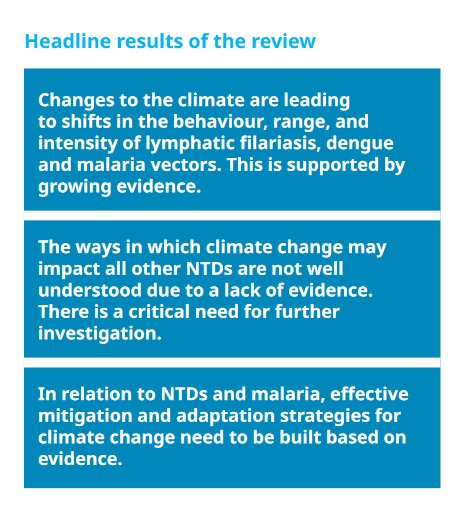WHO | Communiqué on climate change, neglected tropical diseases and malaria

In recent decades we have seen progressive changes to global climate patterns caused by anthropogenic impacts on the environment. These are likely to directly and indirectly affect human health, and are projected to continue and potentially accelerate into the future. Neglected tropical diseases (NTDs) and malaria are potentially particularly sensitive to these changes as they are prevalent amongst vulnerable populations in countries expected to experience the greatest environmental change in the coming decade.
Rising temperatures and changes in precipitation patterns are altering vector breeding habitats and pathogen development, changing the geographical distribution of diseases and transmission risks. The World Health Organization (WHO) is focusing on understanding these changes and encouraging development and implementation of mitigation and adaptation strategies.
The complex and diverse nature of NTDs and malaria, coupled with major research gaps, has led to this urgent call for multidisciplinary efforts to predict, prepare and respond to evolving epidemiological patterns under climate change.